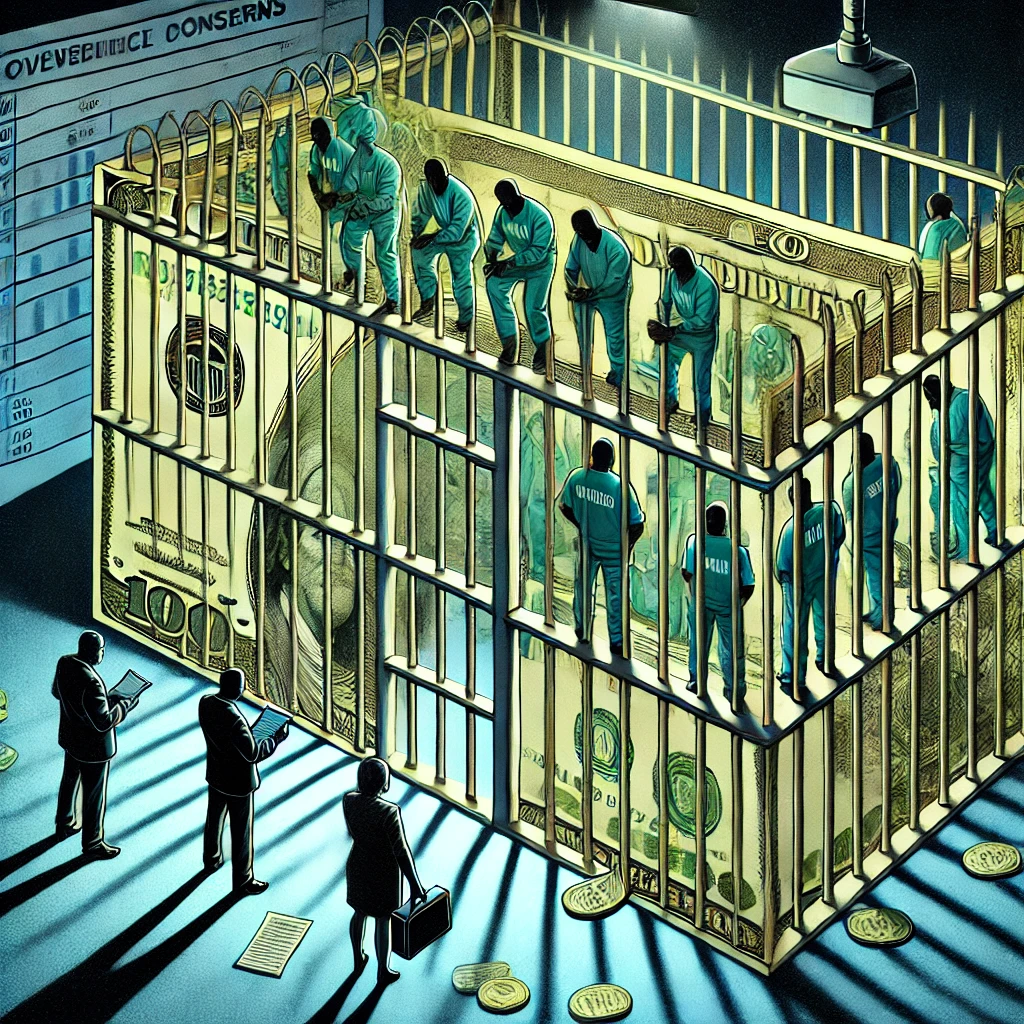
When governments outsource essential services like prisons to private companies, the promise is often efficiency and cost savings. The argument goes that private companies are driven by profit, so they will find ways to operate more efficiently than government bureaucracies. While this may seem logical, the reality is often more complex.
Private prisons operate in a unique market: the government has a single, captive customer. This lack of competition can lead to a dangerous lack of accountability. Without the pressure to compete for customers or attract new clients, private prison companies may prioritize profit maximization over ethical or humane treatment of inmates.
This can manifest in various ways:
- Cutting Corners: To maximize profits, private prisons may cut corners on essential services such as food, healthcare, and rehabilitation programs. This can lead to subpar living conditions and inadequate care for inmates.
- Focus on Profit Over Rehabilitation: Private prisons have a financial incentive to keep their facilities full. This can lead to policies that prioritize incarceration over rehabilitation, such as longer sentences and fewer opportunities for early release.
- Ethical Violations: Instances of abuse and neglect have been reported in private prisons, raising serious concerns about the ethical implications of privatizing such a fundamental service.
Furthermore, the supposed cost savings of private prisons often fail to materialize. While initial costs may be lower, the government often incurs significant costs in overseeing private prisons. This includes:
- Monitoring and Oversight: Government agencies must establish and maintain rigorous oversight mechanisms to ensure that private prisons are complying with all relevant laws and regulations. This requires significant resources and personnel.
- Addressing Legal Challenges: Lawsuits and legal challenges related to the treatment of inmates in private prisons are not uncommon. These legal battles can be costly and time-consuming for the government.
- Rehabilitating Inmates Released from Private Prisons: Inmates released from private prisons may require additional support services due to inadequate rehabilitation programs. This can place a burden on public resources and increase the risk of recidivism.
While the promise of cost savings may seem appealing, the potential downsides of privatizing prisons are significant. The lack of competition, the potential for ethical violations, and the hidden costs of oversight can ultimately make private prisons more expensive and less effective than public alternatives. It’s crucial to carefully weigh the potential benefits and risks before embracing such privatization efforts.
This blog post highlights the potential pitfalls of privatizing prisons. It emphasizes the importance of accountability, ethical considerations, and the potential for increased costs associated with oversight. It concludes by urging a cautious approach to such privatization efforts, emphasizing the need for careful evaluation and a focus on the long-term consequences.